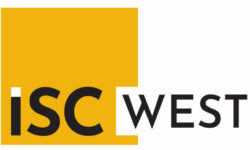What Security Pros Need to Know About the Telephone Consumer Protection Act
Security companies are not immune from being targeted by litigious consumers and law firms for non-compliance with the TCPA. Here’s what to consider when calling or texting consumers.

Calling and texting are efficient and effective marketing tools that can be utilized to reach interested home alarm and security consumers. In most cases, the FCC’s Telephone Consumer Protection Act (TCPA) requires all companies to obtain prior express written consent from consumers before calling or texting with an automatic dialing system.
With approximately 55% of households opting to be cellphone only, TCPA compliance should be a major consideration for home security companies seeking to contact consumers’ cellphones.
These statistics highlight the importance of complying with the TCPA when calling or texting cellphones:
- The average cost of a TCPA Class Action is $6.6 million
- There has been a tenfold growth in TCPA complaints filed over the past decade
- There has been over 2,000 TCPA lawsuits filed in 2020 thus far
Home security companies are not immune from being targeted by litigious consumers and law firms for non-compliance with the TCPA. A quick Google search can help illustrate the volume of litigious activity in this space.
The companies who have recently settled, or are under investigation for TCPA class actions, are generally for the reason of calls made by, or on behalf of, their company with an automatic dialing system.
While the definition of an automatic dialing system may differ from jurisdiction to jurisdiction, what constitutes express written consent, which is the level of consent needed to call with an automatic dialing system, is firmly established. For express written consent to be valid, the disclosure (over the phone or on a form) should include:
- The company name & purpose of calls/texts
- An automated dialing system may be used
- Which phone number will be called/texted (i.e. at the number above)
- The fact that consent is not required to purchase
- An affirmative act to signal their consent (i.e. check a box or click a button)
- And be clear and conspicuous (not small, grey font, for example)
An example of an express written consent disclosure may look like:
By checking this box, you agree for ABC Home Security to contact you at the number above/below with an automated dialing system regarding information about our products. Your consent is not required to purchase.
In addition to obtaining consent, here are the top compliance considerations to help your company avoid, or defend against, a TCPA lawsuit:
Honor Do Not Call and Opt-Out Requests. Train consumer-facing personnel on how to capture and log do not call requests. Additionally, when texting, provide instructions on how to opt-out and look for other common phrases like “stop/quit/cancel/unsubscribe.” Opt-outs should occur immediately with most common calling/texting platforms. Additionally, the FCC has commented that calls and texts (and prerecorded messages) are one in the same, so an opt-out of one should always apply to future calls and texts alike.
Keep records. Maintain all records that demonstrate compliance with the TCPA. This includes call or text logs that capture date/time, express written consent creative used to gain consent and opt-out or do not call request logs.
Only call or text consumers between the hours of 8AM and 9PM according to the consumer’s location. It is better to determine a consumer’s location on their address and not phone number due to cellphone mobility. For instance, if you call a number with a Washington State area code at 8PM PST, but the consumer lives in Florida, they may complain about receiving calls at 11PM EST (their local time).
Monitor compliance with these items. This is another one that may seem obvious, yet most companies fail to do so. It is a virtual guarantee a home security company will find issues with most audits. Companies typically “don’t know what they don’t know.”
Bonus—Here is a more comprehensive checklist on how to achieve a Safe-Harbor defense.
The TCPA has been around for more than 25 years but remains one of the most litigated consumer protection statutes. However, with proper compliance parameters in place, security companies can enjoy the benefits of contacting consumers with peace of mind.
Paul Gipson is the Director of Marketing Compliance for CompliancePoint.
If you enjoyed this article and want to receive more valuable industry content like this, click here to sign up for our FREE digital newsletters!

Security Is Our Business, Too
For professionals who recommend, buy and install all types of electronic security equipment, a free subscription to Commercial Integrator + Security Sales & Integration is like having a consultant on call. You’ll find an ideal balance of technology and business coverage, with installation tips and techniques for products and updates on how to add to your bottom line.
A FREE subscription to the top resource for security and integration industry will prove to be invaluable.













